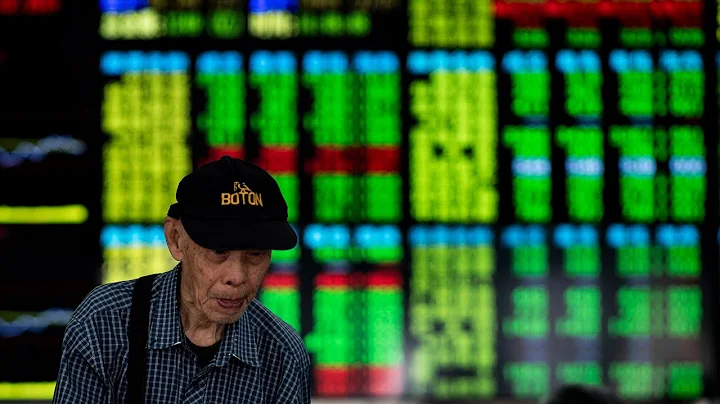is also the most outstanding investment master. In terms of global investment, Templeton went earlier and further than Buffett, and his junior Holloway can analyze Hong Kong stocks and the mainland economy in 15 years. The year after (2007) still seems to be very insightful:
"They (Chinese) are real entrepreneurs. If you have been to Hong Kong, you will find that this is a wonderful place, it is a crazy capitalist society , these people are full of endless energy, they work during the day and do their own business at night. The Chinese people have a history of doing business, and they know how to run a business. China's reform and opening up may be the greatest we will ever witness in the world. The economic growth period will last for a long time. It is wonderful to watch the market gradually open up. "
is very correct.

John Templeton
I have been writing about Templeton on Value, although mostly the "principles of the soul" he advocated after his retirement. But here, Templeton revealed his "Four Laws of Successful Investment":
No. 1, People who save will eventually have luxury goods. In Templeton's view, buying a house through a 30-year, 90% mortgage loan actually costs more than twice the amount of the house payment. It is also an example of how extravagant people usually pay interest to thrifty people. Also, people who borrow money to buy stocks usually end up being losers (they are forced to sell stocks at the wrong time), and few security analysts end up very rich (this is because they are rarely frugal, and they can get a lot of money by making others rich). high remuneration).
Savings and investment are the road to prosperity, and so is the country. 100 years ago, Americans were famous for their frugality. At that time, Europeans were writing books and biographies, worried that Americans would buy up all the assets in Europe. Now that emerging market countries such as China and Vietnam are known for their frugality again, it's time for them to succeed.

Article 2, Buy when you are pessimistic and sell when you are optimistic. This doesn’t require much explanation, everyone knows it. The key is poor execution, as Templeton said, because it “goes against human nature.”
Article 3, All assets have risks - especially cash. This is interesting. People say that cash is the least risky, but in every country, cash is gradually losing its purchasing power. Templeton gave an analogy:
"If you sold a grocery store in 1933, it would probably cost 100 million times more to buy the store back today. Grocery stores are meant to be reasonably safe, But cash is not. In the long run, interest-bearing assets are more likely to maintain their prices than cash, gold, antiques or other assets."
No. 4, The consensus investment is destined to be mediocre. Templeton has a passage that puts it very clearly:
"If ten doctors tell you to take a certain medicine, you are better off taking that medicine. Likewise, if ten engineers tell you to use a certain method to build a bridge, you are better off taking it." It's easy to build bridges that way, but when it comes to stock selection, it's very dangerous to be unanimous. If ten securities analysts tell you to buy an asset, remember to stay away from it. Its stock price must already reflect its popularity. Level. "
I have tried this one time and time again.Whenever I see a newspaper commentator or reporter talking about a stock I own or an industry sector I'm in, my heart sinks and I know things are going to be bad in the short term. When I hear a murmur of doom and gloom before the market opens, I brace myself. There is a nine-tenth chance that the market will rise today. Of course, for medium and long-term investors like me, similar observations are just for my own entertainment and do not constitute operational indicators.
Some readers expressed their regret after reading Value. I can understand this feeling. For example, Templeton’s views on the real estate cycle were very useful to me when I first met him. I felt the housing boom in the 1990s and then watched it slowly sink to the bottom. But at that time, my main concern was how to allocate houses with welfare benefits in my work unit, and I didn’t pay any attention to the real estate market. By around 2001, the Shanghai real estate market revived, and I was extremely unfamiliar with its cyclical characteristics. I could only compare it to the stock market cycle, which affected make your own investment judgment. Let’s see what Templeton said:
“Every country’s real estate market has a cycle. Generally speaking, the cycle is very long. The cycle of the stock market in major countries is usually around 6 years, and the cycle of the real estate market is usually around 18 years. .”
The real estate market cycle is three times the stock market cycle. People like me who have some sense of the stock market cycle will never be able to turn around without the guidance of experts.
By the way, the translator of this article, Zhang Qin, is a volunteer and does not receive any contribution fees. It is said that she works in an accounting firm and has good financial and cultural literacy. When I read her translation, it was almost as if I was reading Chinese. I really enjoyed it.

Another important article in this volume report is "Non-Core Assets" by David Swinson, which is compared to "Core Assets" (see Volume 7 "Investor's Digest" for details). As of the end of June 2007, the size of the Yale University Fund chaired by the 53-year-old chief investment officer had increased to US$22.5 billion. Last year, the return on investment reached 28%, the largest increase in seven years (in 2000, a return of 41%). The return on investment was better than the increase in the S&P 500 index and international stock markets during the same period. In the asset portfolio of Yida Fund, there are about a quarter of stocks, 23% of hedge funds and 16% of merger and acquisition funds. Another 28% is invested in real assets, including timber and properties.
I have already said that since articles such as "Non-Core Assets" are written for individual investors, Shi Yunsheng does not agree with us imitating Yida Fund. Shi Yunsheng recommends that everyone build an investment portfolio that focuses on stock investment and fully diversifies risks. Its core asset categories and allocations are U.S. domestic stocks (30%), foreign developed market stocks (15%), and emerging market stocks (5%). ), real estate securitization (20%), U.S. government bond (15%) and U.S. government inflation linked bond (15%). In other words, allocate 70% of funds to assets similar to stocks, which meets the requirements of diversified risk investment with stock investment as the main focus and an allocation of 5% to 30% for each type of asset.
In "Non-Core Assets", Shi Yunsheng believes that U.S. domestic corporate bonds, high-yield bonds, tax-free bonds, asset-backed securities, foreign bonds and hedge funds (hedging) all have their own serious shortcomings and cannot meet the needs of investors. Require.
Regarding these products, some securities books have discussed them. Perhaps it is my lack of knowledge, but I have never seen anyone like Shi Yunsheng who directly criticizes their fatal shortcomings. For example, instead of buying corporate bonds, it is better to become a shareholder of the company. Because the interests of shareholders are consistent with the company, once the market is favorable to the holders of corporate bonds, the company will activate the redemption clause and redeem the corporate bonds in advance at a fixed price. Holders of corporate bonds will therefore fall into a lose-lose situation of "heads you win, tails I lose". If interest rates fall, the high-coupon bonds held by investors will be redeemed and become losers; if interest rates rise, investors Because the coupon rate of holding bonds is lower than the market, you are also a loser.In short, the company that issues the bond benefits anyway, and the two are in an unequal position.
For another example, hedge fund investment belongs to the field of professional investors, because only they can invest a lot of resources to evaluate the quality of fund managers. Coupled with the high fee structure, especially when risk-adjusted returns are taken into account, individual investors will find it difficult for most hedge funds to generate sufficient risk-adjusted returns.
The pictures in this article are from the Internet and have been deleted





















